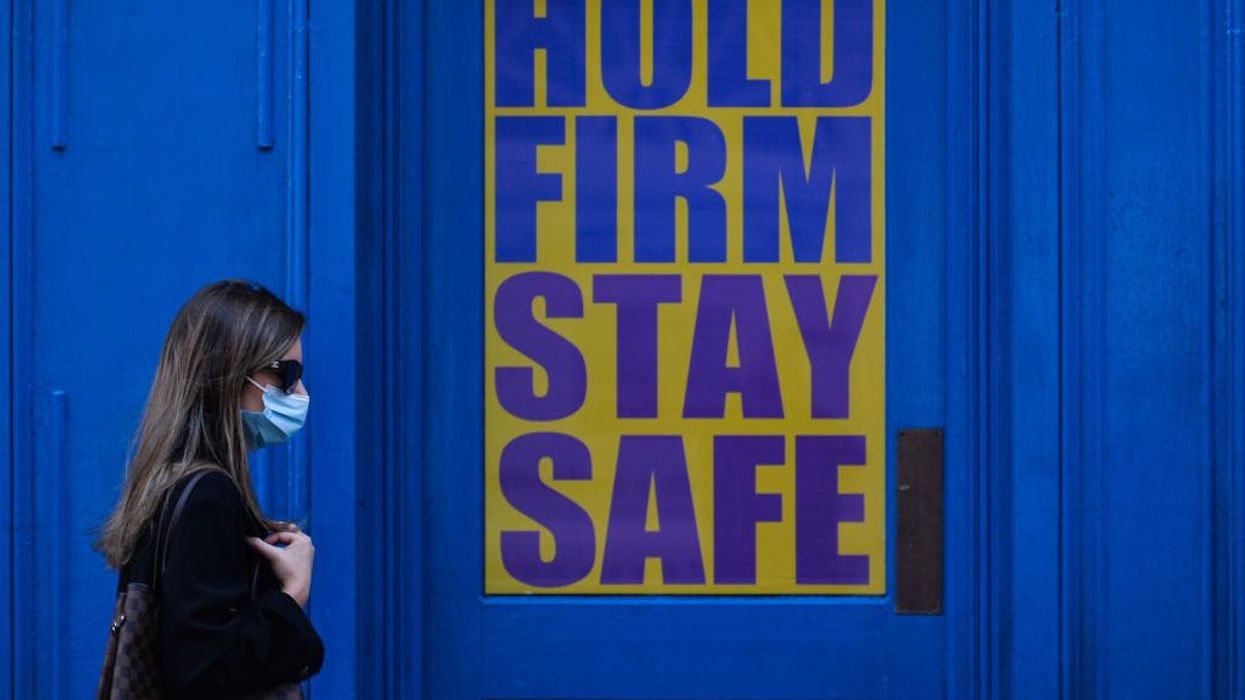
Artur Widak/NurPhoto via Getty Images

On May 13 — after more than a year of masks and social distancing — the U.S. Centers for Disease Control and Prevention finally amended its guidance to say that fully vaccinated people could return to nearly all aspects of normal life.
But for some fully vaccinated people, the news did not alleviate deeply felt fears about health and safety that had become embedded into their psyche. Rather than experiencing a sense of freedom, some continued to feel anxious about rejoining regular life with its crowds, open air, and free-floating pathogens.
"After a year in isolation, many people who have developed an intimate understanding of what it means to socially isolate are afraid to return to their former lives despite being fully vaccinated," the Scientific American reported.
It turns out there is actually a name for this psychological phenomenon: it's called "cave syndrome."
"Emerging into the light after a year locked inside is proving to be a difficult transition for some people," the report, published in May, went on to say. To prove the point, it detailed the experiences of one fully vaccinated Flint, Michigan, resident who explained that she has become even "more fearful of infection":
After being diagnosed with COVID in November 2020, Andrea King Collier doubted the antibodies that she had developed in response to the illness would protect her from a second infection and was determined to be first in, or near the front of, the line for a vaccine. The Flint, Mich., resident registered at every vaccine distribution site she could find and never stopped looking for a way to receive shots early.By February 21 Collier had received her second dose of the Pfizer vaccine. But when the Centers for Disease Control and Prevention gave the green light for vaccinated people to resume prepandemic activities such as gathering indoors without masks on March 8, she did not experience the sense of freedom she had imagined. If anything, she became more fearful of infection. She has yet to eat in a restaurant or see anyone beyond her pandemic bubble. Formerly an avid traveler, Collier says she cannot imagine getting on an airplane again in the foreseeable future.
Two months later, and the strange psychological condition is still plaguing many. The Wall Street Journal reported this week that scores of individuals who are fearful of plunging back into social activities "are awkwardly declining invitations out, avoiding throngs of people and dreading, or even putting off, the return to workplaces."
One example, the Journal noted, is a 49-year-old product management consultant in Rockland County, New York, who still insists on only meeting up with friends if the engagement can be outdoors. Another is a middle-aged father in Dublin, Ireland, who felt uncomfortable celebrating his birthday with family:
For much of the Covid-19 pandemic, Laura G. Bustamante longed for the weekend nights when she used to drive into Manhattan to meet friends, often at karaoke bars in the Koreatown neighborhood.
She's now fully vaccinated, and many New York City bars and restaurants have reopened. Yet Ms. Bustamante says she doesn't feel ready to return to her pre-pandemic jaunts to the city, and she is only comfortable meeting friends there one-on-one, preferably outdoors.
... Eoin Hamilton says he "had a knot in my stomach the entire time" while celebrating his 43rd birthday with family at a hotel in Dublin in early July.
Psychiatrists say that "cave syndrome" symptoms vary in their degree. While some only feel anxious in large groups, others refuse to venture outside their homes at all.
But the effects of "cave syndrome" have been felt by a larger portion of society than one might imagine. A survey conducted by the American Psychological Association earlier this year discovered that nearly half of adults anticipated being uncomfortable returning to normal life post-pandemic. Vaccinated adults were just as likely as unvaccinated adults to anticipate feeling uncomfortable.